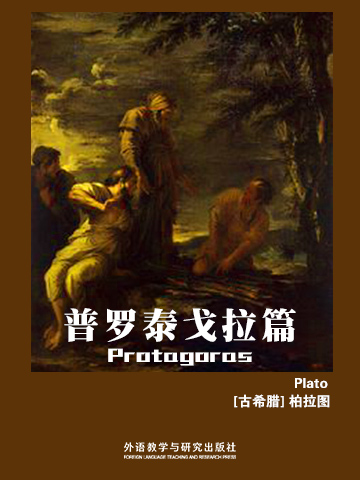In this dialogue Plato discusses the educator Protagoras and the arguments with Socrates. He criticizes the education methods and goals of the sophists. Plato goes on to discuss the nature of the good life and how pleasure and intellect fit into this context. Plato first asked these questions in his dialogue Meno.
《普罗泰戈拉篇》是关于智慧、批判的篇章。柏拉图的所有对话中,这篇对话最为集中地提供了一幅希腊人的生活图景,描述了雅典人对纯粹理智的迷恋。对话得出的结论为:美德必须要有智慧,而罪恶之源在于无知。
Protagoras is a dialogue by Plato. The traditional subtitle (which may or may not be Plato's) is "or the Sophists". The main argument is between the elderly Protagoras, a celebrated Sophist, and Socrates. The discussion takes place at the home of Callias, who is host to Protagoras while he is in town, and concerns the nature of Sophists, the unity and the teachability of virtue. A total of twenty-one people are named as present.
- PROTAGORAS
- 书评 写书评
- 笔记
-
书评加载中...













 京公网安备 11010802032529号
京公网安备 11010802032529号
笔记加载中...